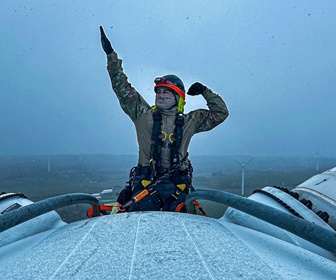Research to develop technology and make sure future offshore wind farms do not interfere with military communications is underway following a £2 million UK Government investment. Contracts have been awarded to Thales, QinetiQ, Saab, TWI and Plextek DTS. By guaranteeing essential defence communications are not affected, more wind farms can be built.
The MOD’s Defence and Security Accelerator (DASA) is spearheading the innovation competition on behalf of the Department for Business, Energy and Industrial Strategy (BEIS), the Royal Air Force (RAF), and the Defence Science and Technology Laboratory (Dstl).
Thales, in collaboration with the University of Birmingham and SMEs, will develop surveillance to mitigate windfarm ‘clutter’, whereas Saab is developing a radar mitigation system using Artificial Intelligence and Doppler filtering. QinetiQ is developing two proposals – the first approach uses new materials to stop the radar from being distorted. Their second proposal will develop radar-absorbing materials that can be put on off-shore wind turbines to limit interference. TWI will develop methods for creating conductive coating for turbine blades that adsorb radar in partnership with the University of Exeter’s Centre for Metamaterial Research and Innovation. Finally, Plextek DTS is developing techniques to remove the effects windfarms have on radar data.










